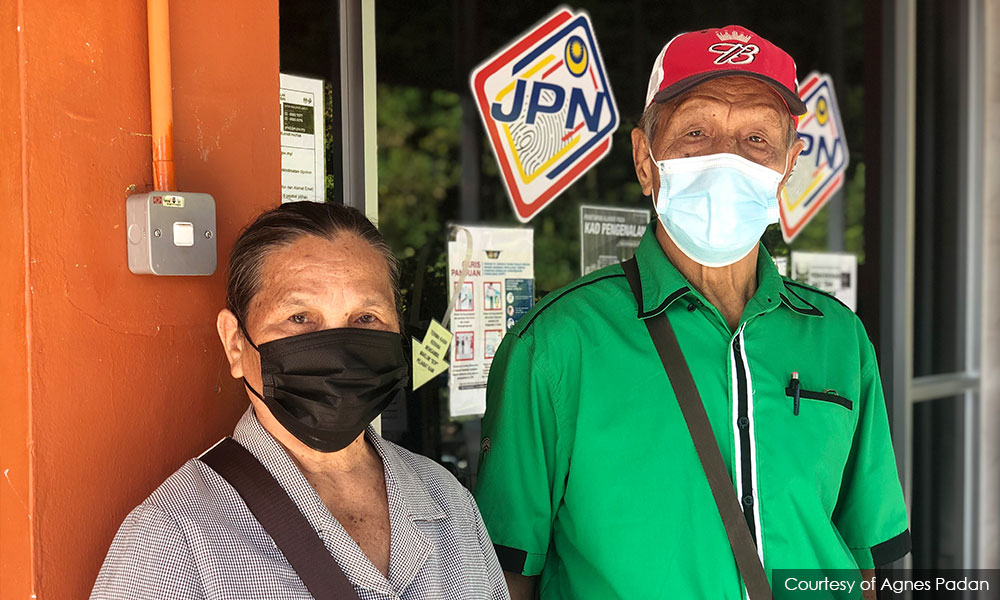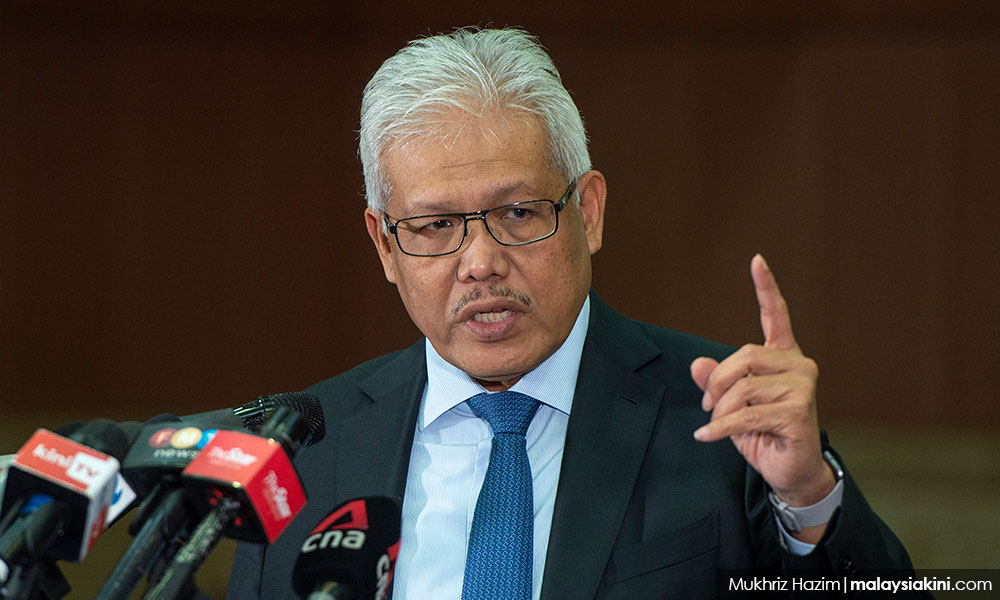Sarlin Rining will be around 73 this year, and like others who have spent their lives working and living in Malaysia, she has done so without actually being a legal citizen of the place she calls home.
What makes Sarlin’s case so unusual is that in April 2019, after decades of fighting for citizenship, she was finally accorded an identification card (IC). Unfortunately, her joy was shortlived when she was summoned by the Lawas District National Registration Department (NRD) just four months later, and asked to surrender her hard-won document.
As with many, Sarlin’s case was not so straightforward at first. She was born in 1948 in Long Bawan in the Indonesian province of Kalimantan before following her parents to the border town of Ba’Kelalan in Sarawak.
The Lun Bawang people in Ba'kelalan are considered ethnically the same as Krayan people in Long Bawan as they share a similar language, culture, and religion and cross border marriages were very common.
This was particularly the case as Ba’Kelalan and Long Bawan are opposite each other and require just a few minutes of travel.
Sarlin grew up in Ba'Kelalan and met her husband Basar Arun. She married at the age of 15 and gave birth to eight children. This was around the time of the formation of Malaysia in which Sabah, Sarawak and Singapore joined Malaya. A move strongly objected to by the Sukarno government, which undertook military action in what was known as the Confrontation.

Basar, now 81, was one of those who put his life on the line to safeguard the sovereignty of the country at the borders of Ba'Kelalan, where he was a border scout working for the British and Malayan government during the Confrontation in 1963-1965.
Sarlin, who doesn’t communicate well in Bahasa Malaysia, told her story in her native Lun Bawang language to Agnes Padan, a women’s activist turned politician who is now Sarawak PKR chief.
“I’m not really sure of my age,” she said, although she was nominally given a July 7, 1948 birthdate on her short-lived IC. Sarlin is often vague about dates.
“Years after the Confrontation, we moved to Batu Mulong, Lawas Damit, Lawas where we live now. The move took nearly one week because we walked," said Sarlin.
The journey from the interior to the coastal town of Lawas is 137km.
“We stayed overnight at each place. Walking from Ba’Kelalan to Long Semadoh to Long Meringau to Pa Berayung to Long Resina to Lawas."
Sarlin recalled that all her children were born in Ba’Kelalan and that they were mostly delivered at home.
“I was asked to deliver my last child at the hospital, but I could not reach it in time, so he was born in the church instead.
“I’m a full-time housewife, and I worked in the paddy fields and took care of my children because my husband was out working.”
Today, Sarlin is the primary caregiver for her son Peter who has been immobilised after suffering a stroke. Fortunately, a Good Samaritan contributed a medical bed to allow for better treatment.
Even Basar does not have citizenship
All this while Sarlin lived as a Malaysian but without citizenship and all its benefits such as welfare payments, voting rights and a pension because even Basar only has a red IC.
When she was finally given one in April 2019, it meant something, but four months later, she was asked to return the IC.
The reason given was that "there are reasonable doubts that she gave false information" to get the IC. It must be remembered that when Sarlin was born there were no precise borders and boundaries between Ba'kelalan and Long Bawan, and many were illiterate with no formal records being kept.
“I was supported by village elders. Uncle Sultan Tawi from Ba’kelalan and village chief Razali from Lawas as witnesses. All my children have birth certificates. I have a marriage certificate,” Sarlin lamented.
Agnes, who is still pursuing the matter with the NRD, called it a "great injustice" to Sarlin and her family.
Malaysiakini is also attempting to get a response from the NRD on the matter.
Sarlin’s situation is perhaps representative of her time, being born before the country became independent.
The UN High Commissioner for Refugees estimated that there are at least 10,000 people in West Malaysia alone who have been denied nationality, with unknown numbers in East Malaysia. These people are not allowed education, jobs or healthcare.

Last December, Home Minister Hamzah Zainudin announced in Parliament during the committee stage of Budget 2021 that the government had decided to grant stateless individuals a one year window to apply for citizenship.
However, while seemingly sympathetic, it ignores the major problem that almost everyone trapped in a stateless situation does not have the correct documents to back them up.
The stateless community also faced challenges due to NRD procedures and requirements.
The standard operating procedure requires the presence of two witnesses, at least 15 years older than the subject, to initiate late birth registration, but securing such witnesses is a real challenge for the pre-independence stateless population like Sarlin.
Unequal laws based on gender
The truth is that even when documentation is not an issue, Malaysia is one of 25 countries with a law that denies women the same right as men to pass citizenship to their children.
In 2019, Bina Ramanand, co-ordinator of the Malaysian Campaign for Equal Citizenship, cited that Article 14 of the Federal Constitution allows Malaysian men to pass on citizenship to their children born overseas, with approval being obtained within a month of applying for citizenship.
Meanwhile, Malaysian women with foreign spouses have to apply for their children’s citizenship under a different provision - Article 15 (2) of the Federal Constitution.
The Pakatan Harapan administration’s then-deputy women, family and community development minister Hannah Yeoh, as well as then deputy prime minister Dr Wan Azizah Wan Ismail and former foreign affairs minister Saifuddin Abdullah even petitioned Muhyiddin Yassin, who was the home minister at the time, in April 2019 to ask the latter to make some laws friendlier to families and children.
Despite the more progressive tone adopted by Harapan, this did not seem to have resulted in any change of law or policy to improve the situation for a lot of women. - Mkini




No comments:
Post a Comment
Note: Only a member of this blog may post a comment.